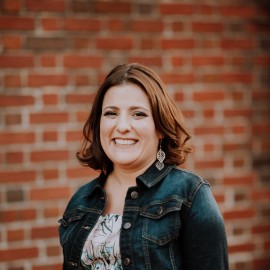
Conference for Community College Advancement
What can you do to enhance your advancement efforts? Come to this annual conference and find out.
Meet colleagues who experience the same challenges as you—peers you can call for counsel and networking.
Learn best practices for building a stronger community college advancement office.
Explore a variety of topics, from practical how-to sessions to big-picture strategic discussions.
Choose from more than 50 inspiring sessions designed specifically for community college professionals.
Listen. Learn. Lead.
The annual meeting of professionals who work to advance community colleges.
Fundraisers
Alumni relations staff
Marketing and communications professionals
Foundation executives and board members
College CEOs and chancellors
Program
Key Speakers

Wednesday, October 2
1:30-3:00
Opening Key Session
Happiness, Habits and Community College Fundraising: Strategies to Survive and Thrive
Amy Eisenstein, Fundraising Strategist and Trainer

Friday, October 4
10:45 AM-NOON
Closing Key Session
Addressing Students’ Basic Needs with a Culture of Caring
Sara Goldrick-Rab, Professor of Higher Education Policy and Sociology, Temple University and Founding Director of the Hope Center for College, Community, and Justice
Register now to secure your spot!
Conference for Community College Advancement
(Oct. 2-4, 2019)
Early Bird* Pricing (by Aug. 23, 2019)
$865 Member
$1,125 Nonmember
Regular Pricing (after Aug. 23, 2019)
$920 Member
$1,195 Nonmember
Newcomers Workshop
(Oct. 2, 2019)
$125 Member
$160 Nonmember
Mid-Level Workshop
(Oct. 2, 2019)
$125 Member
$160 Nonmember
Hotel & Travel
This conference will be held at
Sheraton San Diego Hotel & Marina
Harbor Island Drive
San Diego, CA
Discounted hotel rate:
$219
Book your room by:
Friday, September 6
After the group discounted deadline date, rooms may still be available at the conference hotel. If no rooms are available, CASE recommends the Hilton San Diego Airport/Harbor Island as an alternative hotel.
You may still register for this event after the discounted hotel deadline has lapsed.

Sponsor & Exhibit
To learn more about becoming a sponsor and/or exhibitor at this conference, please email Wanda Harris, manager, Corporate Relations, [email protected]
Gold Sponsors
